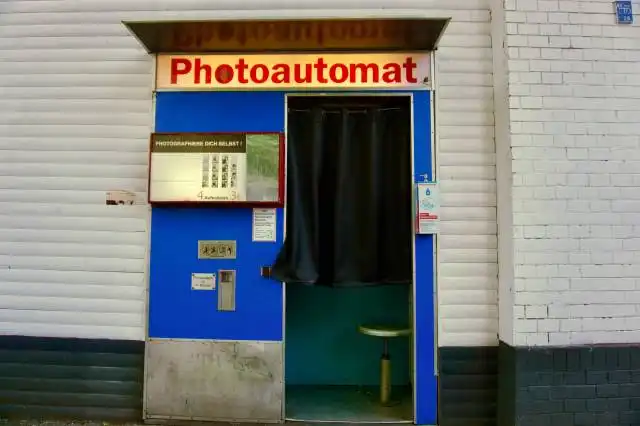Start a Real Estate Staging Business
Unleashing Your Inner Picasso: How to Jazz Up Properties with a Staging Business
| Updated


REAL ESTATE STAGING BUSINESS
A real estate staging business can be your stage to the entrepreneurial world. If you have a knack for style and design, you can jazz up property listings with your creative panache. This type of business steps in to enhance the aesthetic appeal of properties before they hit the market, making them more desirable to potential buyers. It’s all about putting a property's best foot forward – or wall, in this case. In this business, you're not just selling design, but the vision of a potential home, making home-seekers' heart race and their wallets, open.
Jump to Business Plan
RELATED BUSINESS IDEAS
Browse ALL Rental & Delivery Services Business Ideas
Discover Your Perfect Domain
Unlock the door to your online success with our hand-picked selection of premium domain names. Whether you're starting a new venture or rebranding an existing one, the right domain can set the tone for your digital presence. Browse through our curated list, each with its unique potential to enhance your brand's visibility and credibility.
REAL ESTATE STAGING MINI BUSINESS PLAN
This a quick reality check to help you identify the strengths and weaknesses of your business concept before you dive in.
Expected Percent Margins:
- Gross Margin: 30-40%
- Net Profit Margin: 10-20%
Earnings Expectations:
- Daily Earnings: $150 - $600
- Weekly Earnings: $750 - $3,000
- Monthly Earnings: $3,000 - $12,000
- Annual Earnings: $36,000 - $144,000
Actions to Get There:
Inventory Management:
- Initial Investment: Around $10,000 to start building a prop library.
- Supplier Tie-ups: Partner with furniture stores for ready availability and discounted prices.
Client Acquisition and Marketing:
- Networking: Network aggressively with real estate agents and developers.
- Digital Marketing: Maintain an active online presence, highlighting your portfolio through before-and-after shots.
Service Delivery:
- Staffing: Start by doing the staging yourself; hire freelance interior designers as the business grows.
- Speed: The faster stages are completed, the faster you can take on new projects.
Cost Control:
- Rent: Depending on space requirements for storing props, budget rental costs as a percentage of sales.
- Transportation: Efficient routing and scheduling save costs in transporting props to properties.
Business Operations:
- Working Hours: Be flexible - work around real estate agents' and homeowners' schedules.
- Transaction Volume: Aim to stage 3-4 homes per month (average staging prices vary widely, from $200 per consultation to $2,000 per full staging project).
These are broad estimates and will depend on specific market conditions, competition, and your business model. For a more precise analysis, consider getting help from a business consultant or financial advisor.
NOT WHAT YOU HAD IN MIND? Here are more ideas



Browse ALL Rental & Delivery Services Business Ideas
Grab Your Business Website Name
Before you get caught up in the whirlwind of setting up your business, invest in a domain name. It's a small but significant step that lays the foundation for your brand and makes it easier for customers to find and trust you. Just like you wouldn't build a house without securing the land first, don't build a business without securing your domain name.
"Why? Can't that wait?" Here's why it shouldn't
Step 1: Determine if a Real Estate Staging Business is Right for You
Breakdown of Startup Expenses
Starting a real estate staging business requires a significant investment of both time and money. It is important to understand the upfront costs associated with launching a business. These costs may include renting a space, purchasing furniture, hiring employees, and marketing. Additionally, you may need to obtain a business license, insurance, and any other permits required in your area. It is also important to consider the cost of any software or technology you may need to run your business.
Breakdown of Ongoing Expenses
After the initial startup costs, there are ongoing expenses associated with running a real estate staging business. These expenses may include rent, utilities, insurance, taxes, employee salaries, and marketing. Additionally, you may need to purchase additional furniture or supplies as needed. It is important to consider the cost of any software or technology you may need to maintain your business.
Examples of Ways to Make Money
There are several ways to make money with a real estate staging business. You can charge a flat fee for each staging project, charge an hourly rate, or charge a percentage of the sale price of the home. Additionally, you can offer additional services such as furniture rental, interior design, and home staging consultations. You may also be able to partner with real estate agents, homebuilders, and other businesses to increase your income.
Step 2: Name Your Business
When naming your business, it is important to choose a name that is memorable and reflects the services you will be providing. Consider using a combination of words that are related to real estate and staging, such as “Staged Homes” or “Real Estate Staging Solutions.” Additionally, you should make sure that the name you select is not already being used by another business. You can do this by searching the U.S. Patent and Trademark Office database. It is also important to consider the domain name availability for the name you choose. If the domain name is not available, you may need to choose a different name.
Once you have chosen a name, you will need to register it with your state or local government. This will help protect your business name and ensure that no one else can use it. Additionally, you may need to register your business with the Internal Revenue Service (IRS) and obtain a Federal Employer Identification Number (EIN). This will allow you to open a business bank account and apply for business loans.
When registering your business name, you may also need to select a business structure. Common business structures include sole proprietorship, partnership, limited liability company (LLC), and corporation. Each of these structures has its own benefits and drawbacks, so it is important to research each one carefully before making a decision.
Finally, you should consider registering your business name as a trademark. This will help protect your business name from being used by other businesses and will also help you stand out from the competition. You can register your business name as a trademark with the U.S. Patent and Trademark Office.
Step 3: Create a Business Plan
Creating a business plan is essential for any business, and a real estate staging business is no exception. The business plan should include an executive summary, a description of the business, a market analysis, an organizational plan, a description of the services offered, a financial plan, and an appendix. The executive summary should provide a brief overview of the business, its goals, and its financial projections. The description of the business should include the legal structure of the business, the location, the services offered, and the target market. The market analysis should include an analysis of the local market, the competition, and the target market. The organizational plan should include the organizational structure of the business, the roles and responsibilities of the management team, and the staffing requirements. The description of services offered should include the types of services offered, the pricing structure, and the payment terms. The financial plan should include the startup costs, the ongoing expenses, the projected income, and the financial projections. The appendix should include any supporting documents such as resumes, contracts, and licenses.
Step 4: Obtain Licenses and Permits
Types of Licenses and Permits
In order to legally operate a real estate staging business, certain licenses and permits may be required. Depending on the state, city, or county in which the business is located, there may be different licensing requirements. Generally, a business license and a tax identification number are required. Additionally, if the business will be operating in multiple states, a multi-state license may be required. It is important to research the licensing requirements in the area in which the business will be operating. Additionally, if the business will be hiring employees, additional permits may be required.
Step 4: Obtain Necessary Licenses and Permits
When starting a real estate staging business, it is important to understand the types of licenses and permits that are required. Depending on the state, the types of licenses and permits needed may vary. Generally, a business license, a seller's permit, and a tax identification number are needed. Additionally, a zoning permit may be required if the business is operating out of a physical location. It is important to research the requirements of the state and local government to ensure that all necessary licenses and permits are obtained.
Where to Obtain Licenses and Permits
Licenses and permits can typically be obtained from the state or local government. For example, the business license can be obtained from the state's Secretary of State office. The seller's permit and tax identification number can be obtained from the state's Department of Revenue. The zoning permit may be obtained from the local government's zoning office. Additionally, some states may require additional permits or licenses depending on the type of business.
Cost of Licenses and Permits
The cost of licenses and permits will vary depending on the state and local government. Generally, the business license will cost a few hundred dollars, the seller's permit will cost a few hundred dollars, and the tax identification number will be free. The zoning permit may cost a few hundred dollars as well. It is important to research the cost of the licenses and permits before applying for them.
Timeframe for Obtaining Licenses and Permits
The timeframe for obtaining licenses and permits will vary depending on the state and local government. Generally, the business license will take a few weeks, the seller's permit will take a few weeks, and the tax identification number will take a few days. The zoning permit may take a few weeks to process. It is important to research the timeframe for obtaining the licenses and permits before applying for them.
Step 5: Choose a Location
When choosing a location for a real estate staging business, there are several factors to consider. First, the location should be convenient for clients. It should be easy to access and have ample parking. Second, the location should be large enough to accommodate staging furniture and props. Third, the location should be affordable. Renting an office space or storefront can be expensive, so it is important to find a location that fits within the budget. Fourth, the location should be in an area that is conducive to the business. It should be in a neighborhood with a high concentration of real estate agents and potential clients. Finally, the location should have a professional atmosphere that reflects the quality of the business.
Step 6: Obtain Necessary Licenses and Permits
Types of Licenses and Permits
When starting a real estate staging business, it is important to obtain the necessary licenses and permits. Depending on the state and local regulations, the types of licenses and permits required may vary. Generally, a business license and a seller’s permit are required. A business license is needed to legally operate the business, while a seller’s permit is needed to purchase items for resale. Additionally, a zoning permit may be required to ensure that the business is operating in a designated area. Furthermore, a tax identification number may be needed to file taxes. Finally, a certificate of occupancy may be required to ensure that the business is operating in a safe and compliant location.
Step 6: Purchase Equipment and Supplies
When starting a real estate staging business, there are certain types of equipment and supplies that will be necessary for the business to run smoothly. These include furniture, artwork, rugs, curtains, and other home decor items. Depending on the size of the business, it may also be necessary to purchase a truck or van for transporting staging items. Additionally, it may be necessary to purchase office supplies such as a computer, printer, and other office equipment.
Where to Purchase Equipment and Supplies
When it comes to purchasing equipment and supplies for a real estate staging business, there are a few different options. One option is to purchase items from local stores or online retailers. This can be a great way to get the items needed at a reasonable price. Another option is to purchase items from wholesalers or liquidators. This can be a great way to get items at a discounted price. Finally, it may be possible to rent items from rental companies. This can be a great way to save money and still get the items needed for the business.
Cost of Equipment and Supplies
The cost of equipment and supplies for a real estate staging business can vary greatly depending on the size of the business and the types of items needed. Generally speaking, it is possible to purchase the necessary items for a few hundred dollars. However, if the business is larger and requires more items, the cost can be much higher. Additionally, if the business chooses to rent items, the cost can also be higher.
Ways to Save Money
When it comes to purchasing equipment and supplies for a real estate staging business, there are a few ways to save money. One way is to purchase items from wholesalers or liquidators. This can be a great way to get items at a discounted price. Additionally, it may be possible to rent items from rental companies. This can be a great way to save money and still get the items needed for the business. Finally, it may be possible to purchase used items from online marketplaces or second-hand stores. This can be a great way to get the items needed at a lower cost.
Step 7: Market Your Business
One of the most important steps in starting a real estate staging business is to create a marketing plan. This plan should include a combination of both online and offline tactics to reach potential clients. Online tactics may include creating a website, using social media, and running online ads. Offline tactics may include attending local real estate events, networking with real estate agents, and placing ads in local newspapers.
Develop a Brand Identity
Creating a brand identity is essential for any business. This includes developing a logo, creating a tagline, and designing a website. It is important to create a unique brand identity that will help you stand out from the competition. Additionally, it is important to create a consistent brand message that will be used across all of your marketing materials.
Utilize Word of Mouth
Word of mouth is one of the most powerful marketing tools available. Encourage your current clients to spread the word about your business by offering referral discounts or other incentives. Additionally, you can ask your clients to leave reviews on your website or social media pages. This will help to increase your visibility and credibility in the real estate staging industry.
Network with Real Estate Agents
Real estate agents are a great source of referrals for real estate staging businesses. Networking with local real estate agents can help you get your business in front of potential clients. You can do this by attending local real estate events, sending out mailers, or offering discounts to agents who refer clients to you. Additionally, you can offer to stage a few homes for free to demonstrate the value of your services.
Step 8: Hire Employees
When it comes to hiring employees, it is important to take the time to find the right people for the job. Start by creating a job description that outlines the skills and qualifications needed for the position. Then, post the job description online and in local newspapers. Additionally, reach out to local colleges and universities to see if there are any qualified candidates. Once you have a few potential candidates, conduct interviews to determine who is the best fit for the job. Finally, make sure to conduct background checks and verify references before making a hiring decision.
Step 9: Market Your Business
Create a Website
Creating a website is an essential part of marketing your business. Start by choosing a domain name that is easy to remember and reflects your business. Then, design the website with a professional look and feel. Make sure to include information about your services, contact information, and customer testimonials. Additionally, create a blog to post helpful articles and tips related to real estate staging. Finally, use social media to promote your website and services.
Step 9: Set Up Accounting System
When setting up a real estate staging business, it is important to choose an accounting system that is reliable and easy to use. Popular accounting software options include QuickBooks, Xero, FreshBooks, and Wave. Each of these software programs offer different features, so it is important to research and compare them to find the one that best meets the needs of the business.
Hire an Accountant
For those who are not comfortable with setting up and managing their own accounting system, it is important to hire a professional accountant. An accountant can help set up the system, provide advice on the best accounting practices, and ensure that all taxes and other financial obligations are met.
Set Up a Separate Bank Account
To ensure that the business finances are kept separate from personal finances, it is important to set up a separate bank account for the business. This will make it easier to track expenses and income, and will also help to keep the business finances organized.
Establish a Budget
Creating a budget is an important step in setting up a real estate staging business. A budget should include both startup and ongoing expenses, such as rent, utilities, advertising, and payroll. It is important to track expenses and income on a regular basis to ensure that the business is staying within its budget.
Track Expenses
Once the budget is established, it is important to track expenses on a regular basis. This will help to ensure that the business is staying within its budget and will also help to identify areas where costs can be reduced. Tracking expenses can also help to identify areas where the business can increase its profits.
EXPLORE MORE CATEGORIES
Browse ALL Business Idea Categories
TAKE THE NEXT STEPS










